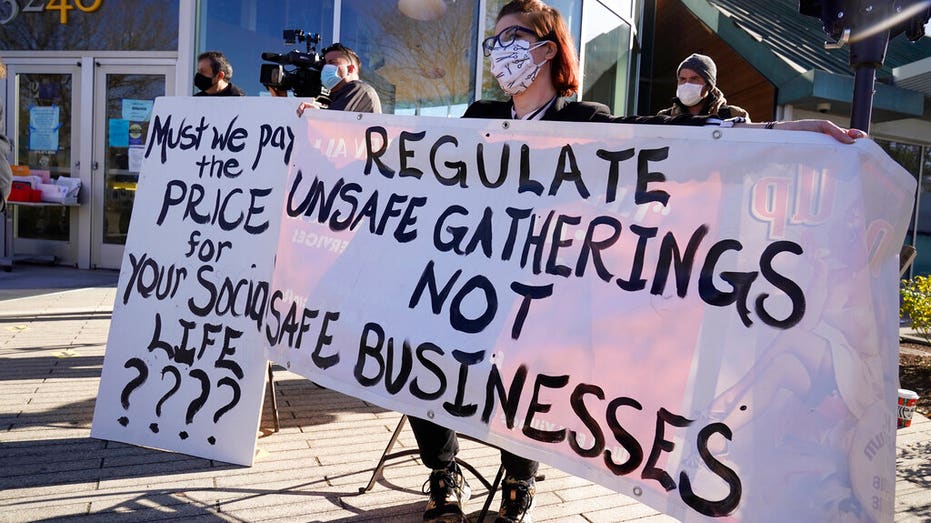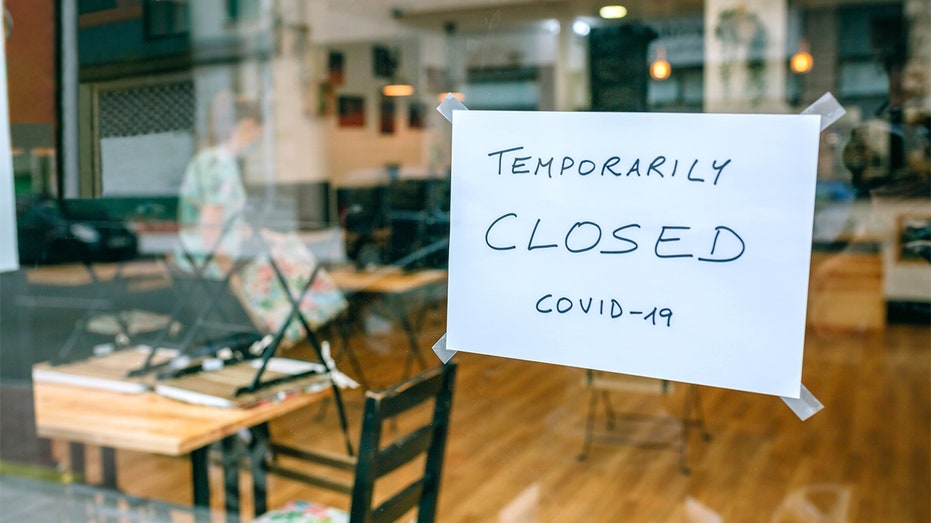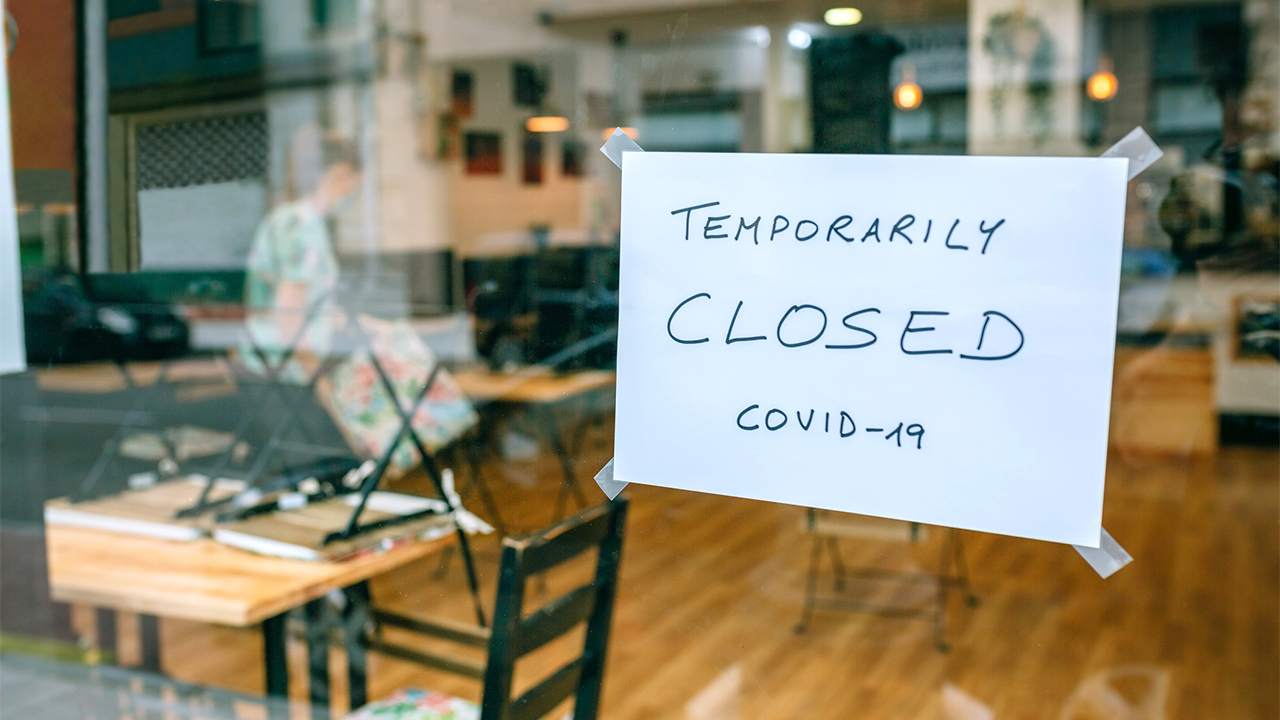Challenges to COVID-19 lockdowns have been mostly losing in court
Judges generally uphold restrictions on businesses and the scope of freedom, in biggest test of state governments’ legal power in a century
When the owners of four Albuquerque trampoline parks sued New Mexico's governor for pandemic-related shutdowns that almost bankrupted them, they argued it wasn't fair that they had to close when tanning salons, guided balloon tours and ice-skating rinks stayed open.
The argument got nowhere with U.S. District Judge James Browning. "The Court will not recognize a new fundamental right to operate a trampoline facility," he wrote in a Feb. 8 ruling, upholding the closures.
The decision was the latest in a long line of defeats for businesses and individuals challenging lockdown rules and state emergency measures intended to combat the Covid-19 pandemic. Together, the roughly 300 civil liberties lawsuits related to Covid-19 represent the most significant test in more than a century of the emergency powers of state governors and the scope of liberty in dire times.
A review of rulings on emergency measures shows that federal and state courts have been reluctant to second-guess governors, upholding widespread restrictions on travel, gatherings and commerce. On the federal bench, judges appointed by Republican presidents were less deferential, but overall, the courts have given more weight to the government's interest in controlling disease than to the rights of individuals and business owners.

Ryan McCann holds up a banner during a protest by hair salon owners and workers against test lockdown orders outside the offices of Marin County Health Officer Dr. Matt Willis Thursday, Dec. 10, 2020, in San Rafael, Calif. (AP Photo/Eric Risberg)
VIRAL VEGAS: DEATHS JUMP, TOURISM SLUMPS AMID LONG PANDEMIC
When judges did push back against state orders, their sharpest scrutiny was reserved for restrictions on religious worship and abortion access.
"The courts have been more lenient than I would have predicted before the pandemic," said Lindsay F. Wiley, a health law professor at American University. "It's been remarkable how much they've upheld restrictions."
Legal precedents have long recognized that states have broad latitude to take drastic measures to protect the health and safety of the general public. But the limits of those powers have never been fully fleshed out.
Until recently, a U.S. Supreme Court ruling from 1905 concerning smallpox vaccinations was the last important opinion on the matter. That decision said emergency measures should be upheld unless they don't serve health interests and are flagrantly unjust.
It would take a 21st century global health crisis to define the limits of those powers more clearly.
In waves of orders starting in March, state governors temporarily shut down hundreds of thousands of shops, restaurants, theaters and salons, proscribed gatherings at home and outside, and required visitors to undergo two-week quarantines.

In this April 2, 2020 file photo, a notice of closure is posted at The Great Frame Up in Grosse Pointe Woods, Mich. (AP Photo/Paul Sancya, File) (AP)
MOST AMERICANS EXPECT TO SAVE THEIR $1,400 STIMULUS CHECK, NOT SPEND IT, NEW SURVEY SHOWS
Lawsuits quickly followed, complaining that state health orders violated a multitude of constitutional provisions, including the First Amendment's protections of free speech, free exercise of religion and free assembly, and the 14th Amendment's due-process clause.
Businesses challenging closure orders and occupancy limits have had a hard time convincing judges that their fundamental rights have been injured. Last month, a New York federal judge denied an injunction sought by car dealerships in Brooklyn challenging rules restricting walk-in sales.
"There are undoubtedly those who worship the automobile, but the Founding Fathers were not among their ranks," wrote U.S. District Judge William Kuntz in his opinion.
"Judges skeptical of government regulation are confronting compelling cases for government regulations," said Stephen Vladeck, a professor at the University of Texas School of Law. "That's a big part of why local and state governments have been winning most of these cases."
In a handful of cases, including in cases before state courts in Michigan and Wisconsin, plaintiffs succeeded in blocking health measures because courts determined that governors overstepped their authority and failed to follow rule-making procedures.
Other rulings were more sympathetic to plaintiffs in tone if not judgment. In October, a federal judge in Brooklyn upheld a rule prohibiting restaurants from serving late-night customers, while acknowledging the measure's economic toll.
"I have no doubt that prolonging the restrictions on businesses and restaurants will make economic recovery more difficult," wrote U.S. District Judge Brian Cogan. "Indeed, it may be that continuing restrictions on business will turn New York City into a very different, even desolate, place."

Businesses challenging closure orders and occupancy limits have had a hard time convincing judges that their fundamental rights have been injured.
Last fall, the conservative-leaning U.S. Supreme Court blocked New York from setting strict limits on attendance at religious services.
Lower courts have since relied on a concurring opinion in the New York case from Justice Neil Gorsuch, who wrote that the urgent needs of the pandemic shouldn't override the normal rules for reviewing constitutional claims.
The Supreme Court's pronouncements led to more demanding judicial reviews of restrictions affecting fundamental rights, often the right to an abortion. In several cases, courts struck down state orders blocking abortions as part of restrictions on elective surgeries.
The Supreme Court has left a number of legal questions unanswered. Federal court rulings have differed on whether quarantine mandates for out-of-state visitors violate a constitutional right to travel. Judges have also pondered how blanket bans on gatherings implicate the right to assembly.
GET FOX BUSINESS ON THE GO BY CLICKING HERE
While a number of judges rejected lawsuits arguing that owners of shut-down businesses have a right to pursue a livelihood that warrants special protection, a split has begun to emerge on that issue.
"The Supreme Court has never repudiated the recognition that a citizen has the right to work for a living and pursue his or her chosen occupation," wrote U.S. District Judge William Stickman of Pennsylvania in a September ruling that invalidated several of Gov. Tom Wolf's emergency orders. That ruling is under appeal.
Roger Benitez, a federal judge in California, echoed Judge Stickman's view, stating in a January opinion that the "right to work for a living in one of the common occupations of the community is a core personal freedom."
The economic liberties argument could find appeal in a more right-leaning judiciary, said Prof. Vladeck. "There is a whole new generation of judges who think courts shouldn't blindly defer to the political branches when it comes to economic rights," he said.




















